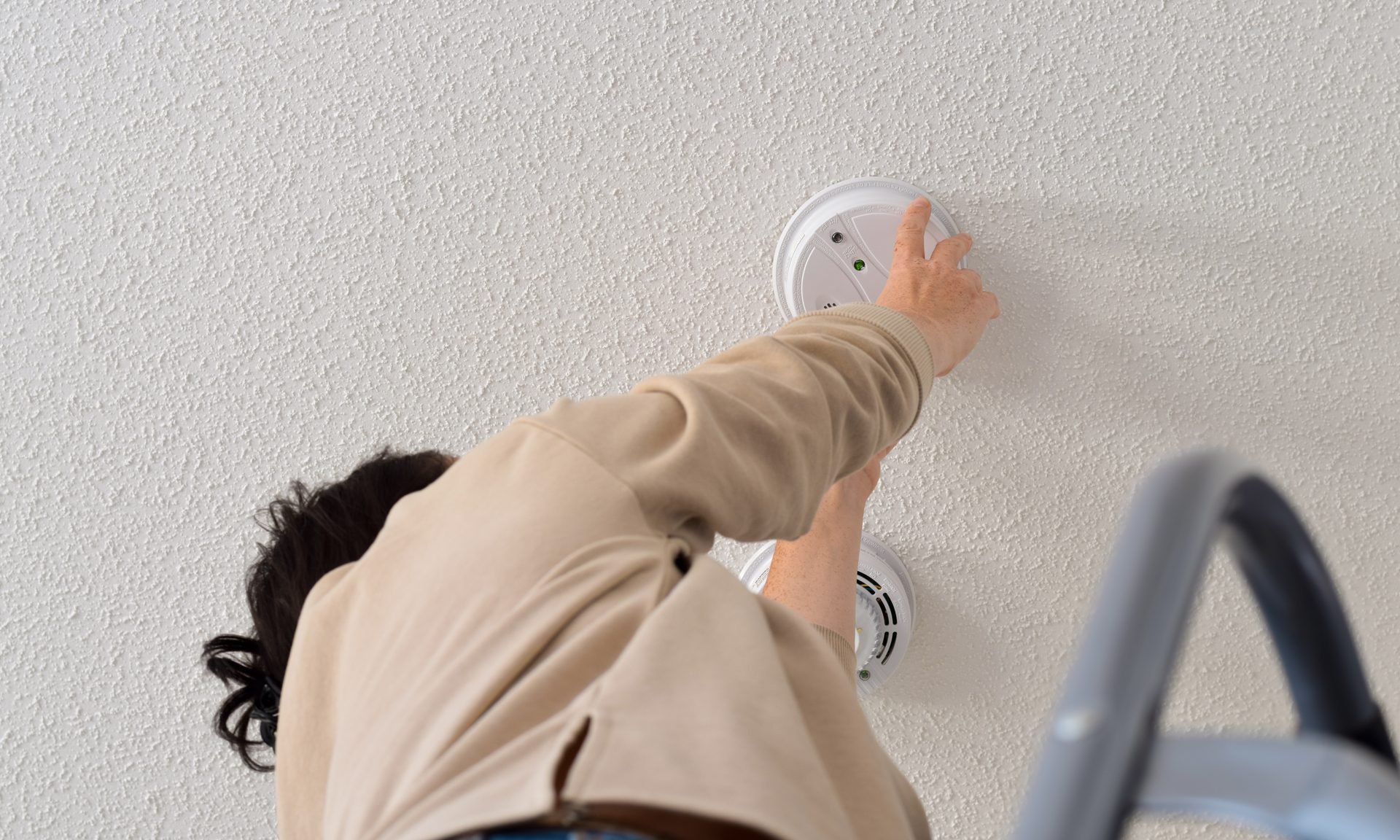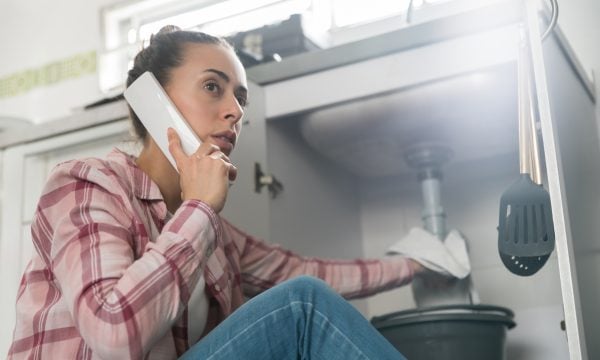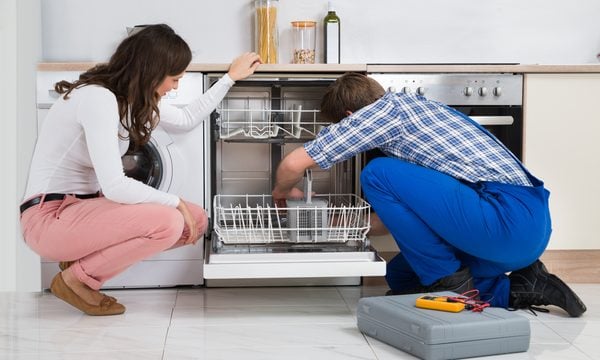Why Is My Fire Alarm Beeping? How to Stop a Chirping Smoke Alarm
First, make sure there's no fire.

Some or all of the mortgage lenders featured on our site are advertising partners of NerdWallet, but this does not influence our evaluations, lender star ratings or the order in which lenders are listed on the page. Our opinions are our own. Here is a list of our partners.
There are eight main reasons a fire alarm might go off: hidden threats, low batteries, age, dust, particulates, humidity, bugs and fireplace smoke.
1. The fire alarm is detecting smoke
Three continuous beeps usually mean the fire alarm detects smoke in the area, according to the National Fire Protection Association (NFPA) . If your smoke alarm also detects carbon monoxide, four continuous beeps usually means it detects carbon monoxide.
A smoke alarm beeping when there's no noticeable smoke can be irritating, but fire alarms can detect hidden electrical fires before there’s a visible blaze. Take time to verify that there is actually no fire or carbon monoxide problem. False alarms happen, but it’s important to take a beeping fire alarm seriously and follow fire safety protocols.
2. The fire alarm's batteries are low
A single, high-pitched chirp roughly every 30 to 60 seconds usually indicates that the fire alarm has low batteries. If the single beeps continue even after changing batteries, it could indicate dust in the alarm or that it needs replacing.
🤓 Nerdy Tip
Many home security systems come with or offer smoke detectors or devices that listen for the sound of a beeping or chirping smoke alarm. Check out our picks for the year's best home security systems. 3. The smoke detector is old
A smoke alarm should last around 10 years. After that, it may malfunction or produce false alarms. If your detector is over a decade old or you don’t know how old it is, replacing it could help. You can test your alarm to see if it still works by pressing the test button. If it makes three beeps, that suggests it’s working, according to the NFPA.
4. Dust, dirt or environmental smoke are clogging the fire alarm
Dust and dirt can build up in your smoke alarm, interfere with the battery connection and block the smoke sensors, especially during a home renovation. Smoke from wildfires can also trigger a false alarm. To keep your smoke alarm clean, use your vacuum cleaner, a wipe or a canister of compressed air . The back of the alarm may specify which cleaning method the manufacturer recommends.
5. The smoke alarm is detecting burnt food
Smoke detectors sometimes start beeping if they misread the scent of burnt food in the air as smoke, even if there’s no actual smoke. Place your smoke detector away from your stove, such as in a hallway adjoining the kitchen instead of in the kitchen. The NFPA actually recommends against placing a fire alarm in a kitchen or bathroom .
6. High humidity or steam are setting the fire alarm off
Smoke alarms can’t always tell the difference between smoke and steam. A lengthy hot shower or boiling water may set off a smoke alarm. Extreme seasonal humidity may cause chirping. Increase ventilation in your kitchen or bathroom by opening windows while boiling water or taking a hot shower.
7. There's a bug in the smoke alarm
Your fire alarm beeping might be from small bugs and spiders looking for a cozy dark spot. Like dust and debris, they can disrupt the battery connection or block sensors, triggering the alarm or causing chirping. Remove the faceplate to inspect for and clean out unwanted insect guests.
8. The smoke detector is near a gas or wood fireplace
A dirty chimney, blocked chimney or improper damper settings could cause smoke to back up in your home and trigger a smoke alarm. Keep your fireplace clean and regularly schedule a chimney sweep and inspection.
What do I do if my fire alarm is still going off for no reason?
If you’ve covered all your bases and your alarm is still chirping or going off for no reason, check your smoke alarm manufacturer’s website or contact your home security company. You can also contact your local fire department’s nonemergency line to schedule an inspection.
Frequently Asked Questions
Where do I need a smoke alarm in my home?
You should have a smoke alarm installed on every level of your home, inside and outside each bedroom and sleeping area, according to the NFPA. Consult the manufacturer's instructions for best placement and have a qualified electrician install hardwired smoke alarms.
How often do I need to test my smoke alarm?
You should test your smoke alarm once a month. Push the test button and listen for the loud triple beep. If you don’t hear that sound, replace the battery. You should replace your entire smoke detector after ten years.
What if someone in my home is deaf or hard of hearing?
For deaf or hard of hearing people and homeowners, there are smoke alarms with visual elements such as flashing lights to ensure you know an alarm is sounding and it’s time to evacuate. Pillows or bed shakers can integrate with smoke alarms for a physical alert.
Article sources
NerdWallet writers are subject matter authorities who use primary,
trustworthy sources to inform their work, including peer-reviewed
studies, government websites, academic research and interviews with
industry experts. All content is fact-checked for accuracy, timeliness
and relevance. You can learn more about NerdWallet's high
standards for journalism by reading our
editorial guidelines.
- 1. National Fire Protection Association. Smoke Alarm Information. Accessed Aug 22, 2024.
- 2. National Fire Protection Association. Smoke Alarm Troubleshooting. Accessed Aug 22, 2024.
- 3. National Fire Protection Association. Smoke Alarm FAQs. Accessed Aug 22, 2024.
More like this
Related articles





